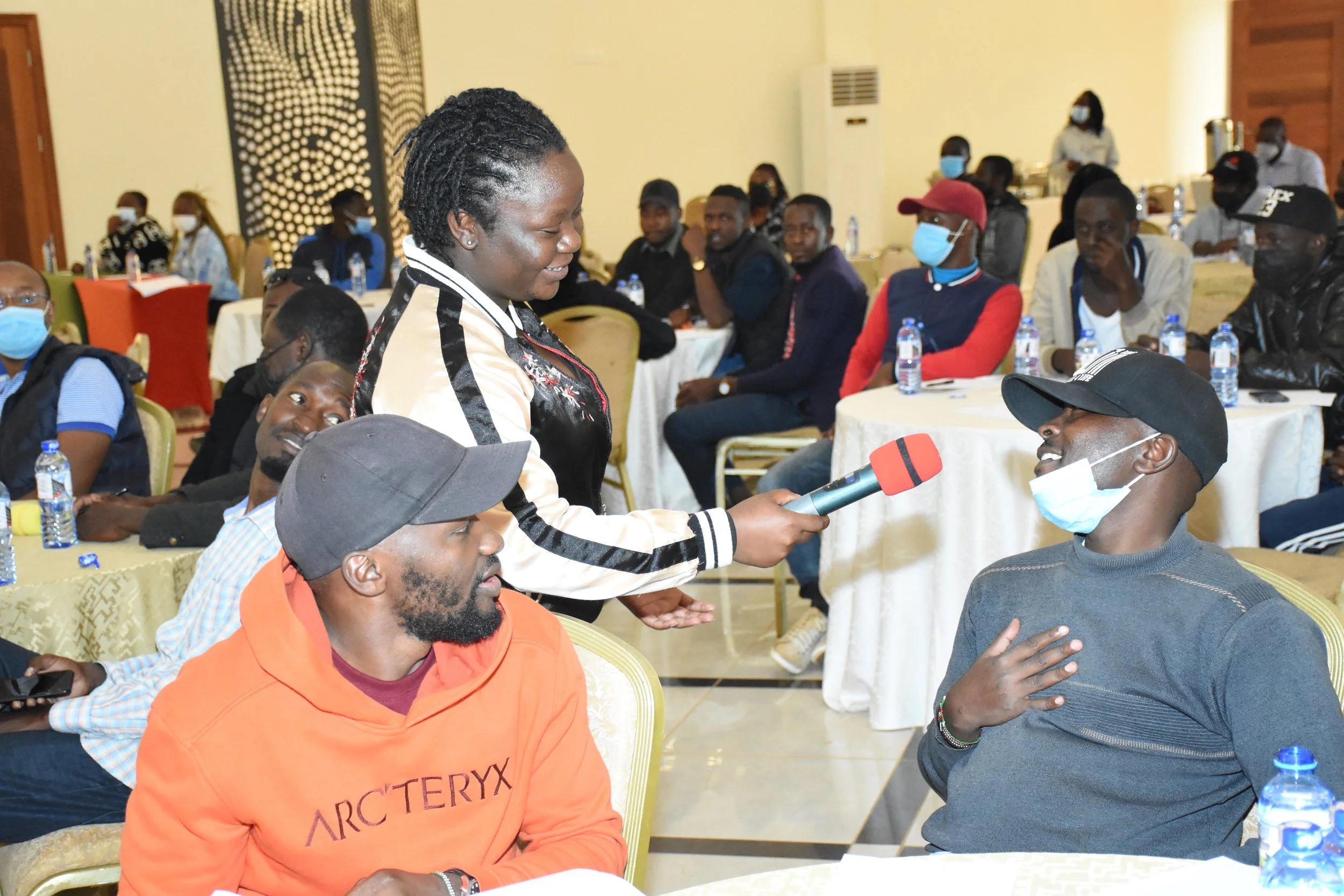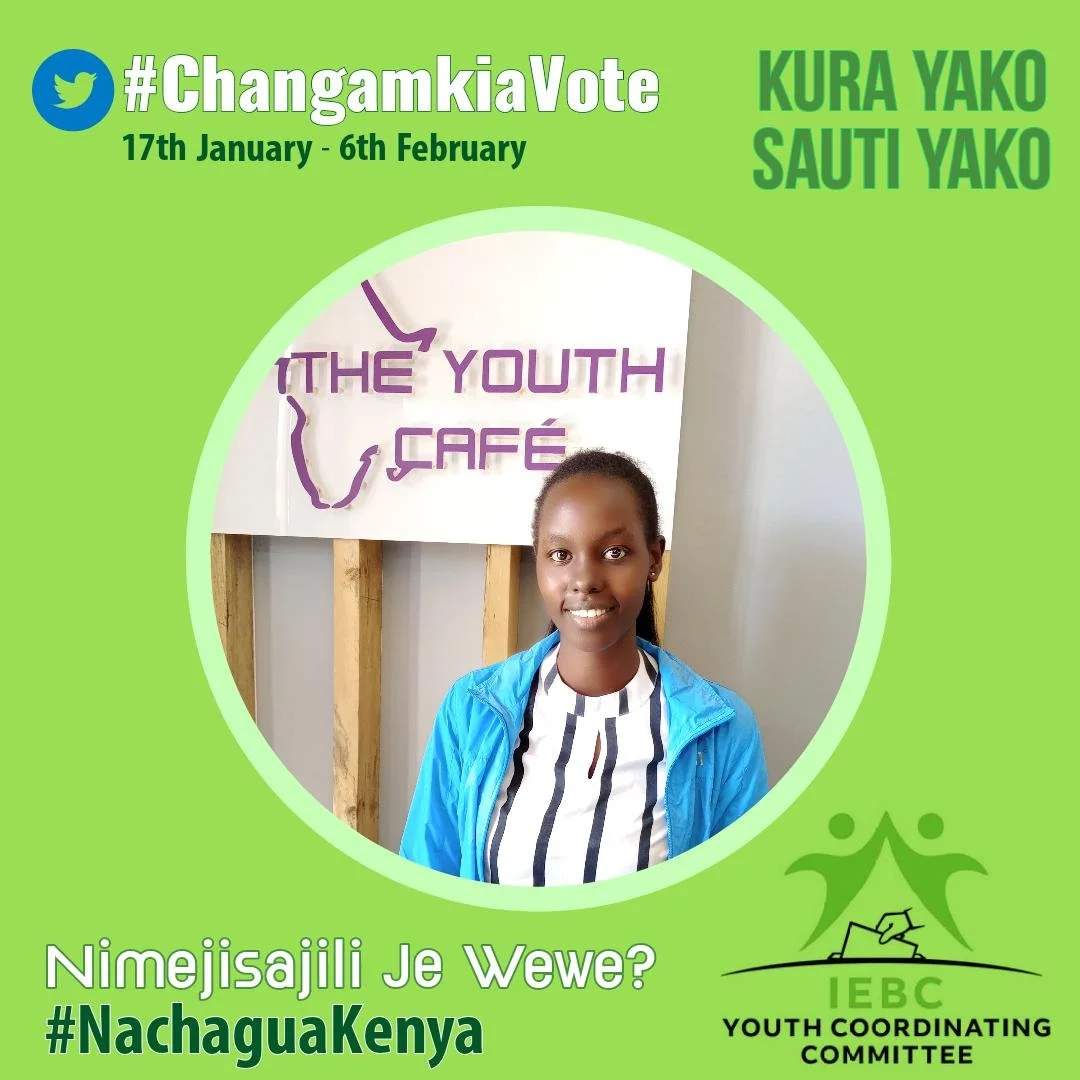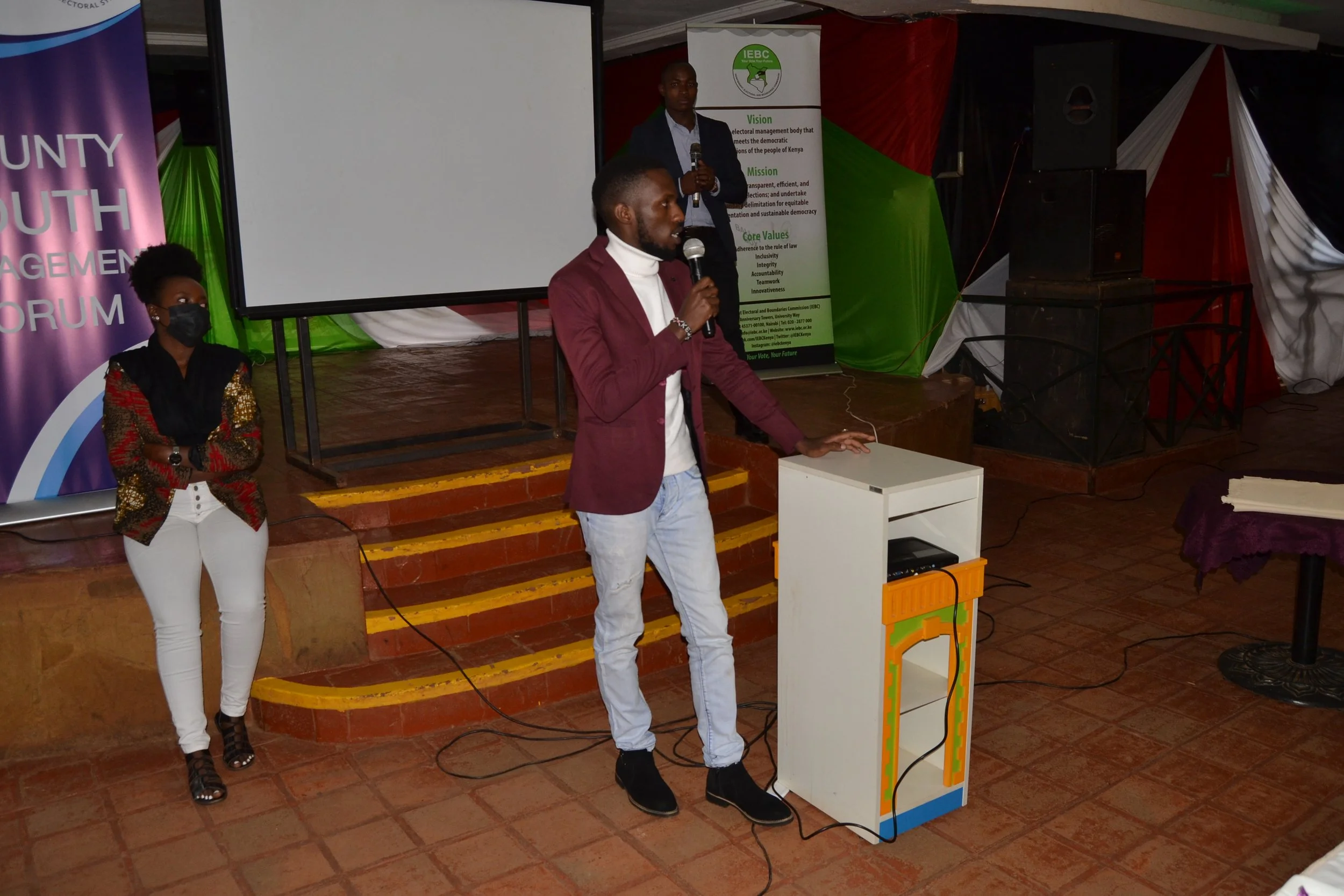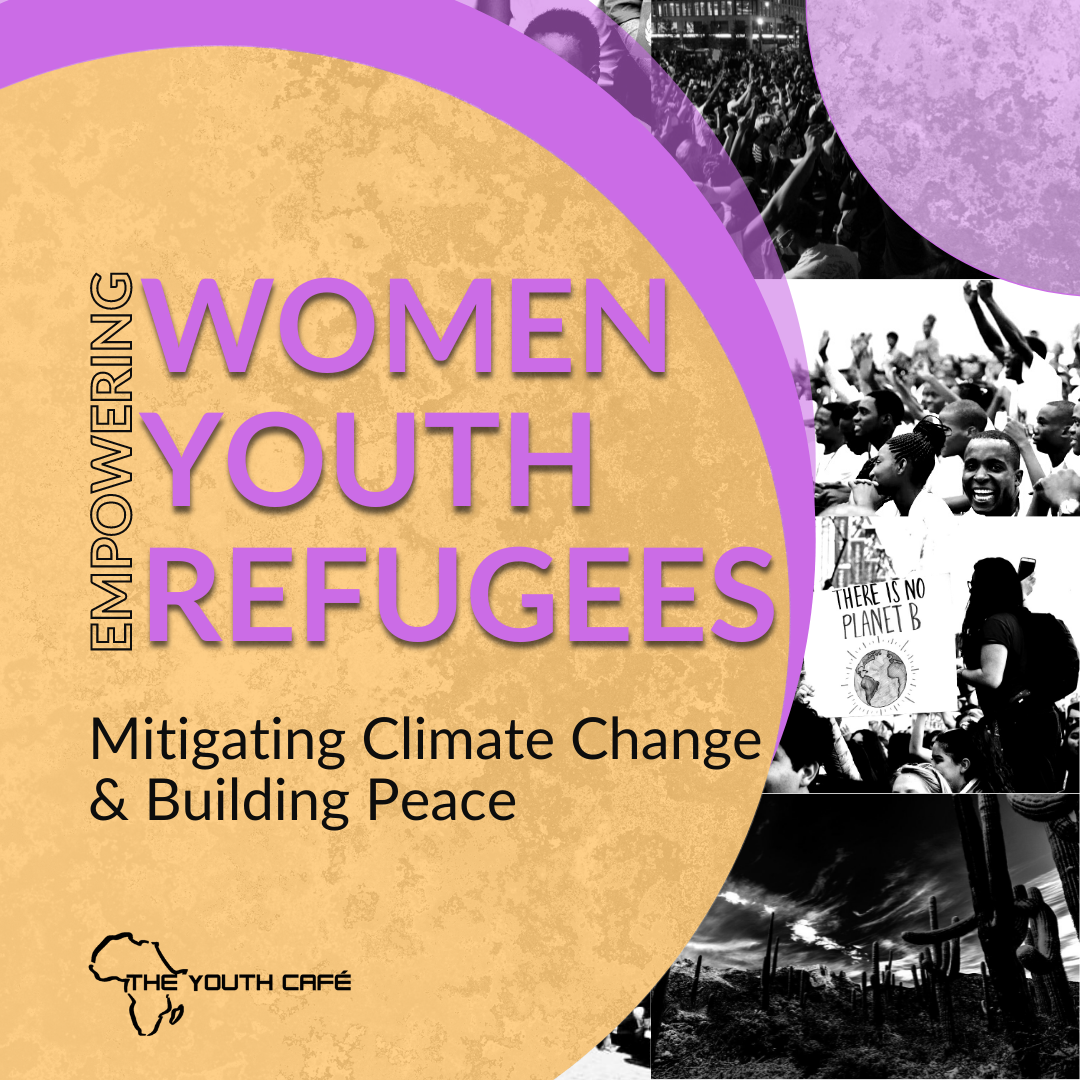The Youth Café trains the youth on civic education driven by result-oriented, evidence-based performance, which informs Our Theory of Change: A Pathway for Action, Sustainability, Results, Learning, and Adoption. These changes include institutional changes, service systems, community norms, partnerships, public will, policies, regulations, service practices, business practices, and issue visibility.
The High-Level Global Conference On Youth-Inclusive Peace process | The Youth Café.
The High-Level Global Conference on Youth-Inclusive Peace Process was held virtually on 20-21 January 2022, co-hosted by Qatar, Finland, and Colombia, and co-organized with civil society and UN partners. It began with a Youth Pre-Event on 19 January 2022, leading up to the Global Conference on 20-21 January 2022. The high-level conference aimed to secure national commitments to advance the country-level operationalization of the Youth Peace Security agenda and strengthen political will and commitment to including youth in peace processes. Interactive and action-oriented discussions convened across five themes building on the Youth Peace Security agenda between Heads of State and other High-Level Government representatives, young peacebuilders, and representatives of intergovernmental organizations, CSOs, academia, and donors.
The Youth Café At The Voluntary National Review-Voluntary Local Review Workshop.
Voluntary National Review is a strategy based on the 2030 Agenda: Member states to "conduct regular and inclusive reviews of progress at the national and sub-national levels, which are country-led and country-driven. Like the 2030 Agenda of participation, The Youth Café strives for global connection, has reached over 72 countries, and is a local and national rope for achieving goals. The Youth Cafés principles are a call to action for governments, civil societies, private and public sectors, bi- and multilateral, and knowledge institutions. To invest in mutual prospects and work in partnership for sustainable development.
How Can We Get More Young People To Register As Voters.
Acknowledging the dire need for increased youth participation in the electoral process, The Youth Café has been working on ways to get more young people to register as voters. Research by the Office of the United Nations High Commissioner for Human Rights (OHCHR), shows that the youth could be largely categorized in three distinct demographics, classified according to age; with the first demographic being young people aged between 18-24 years, then 25-29 years and 30-35 years. Each of these key demographics will require a different approach to get them to register as voters.
The Youth Café Discussions With The Chief Justice On Social Transformation Through Access To Justice.
In commemoration of the International Day of Democracy, a section of the Civil Societies Organizations, The International Commission of Jurists, International Justice Mission Kenya, Kenya Human Rights Commission, Amnesty International Kenya, Centre of Rights Education and Awareness, Transparency International- Kenya, and The Youth Café held a virtual meeting with the Chief Justice, the president of the Supreme Court, honorable Lady Justice Martha Koome, On September 17, 2021, to deliberate on collaborations and contributions towards the implementation of the Chief Justice’s vision of social transformation through access to justice.
Is Kenya Prepared For The 2022 General Elections?
It is now time to deliberate on the state of electoral preparedness ahead of 2022's general election in Kenya. Many stakeholders such as The Youth Café, Election Observation Group (ELOG), The Kenya National Commission on Human rights (KNCHR) as well civil societies, faith-based organizations, members of the public and duty bearers involved in the election process, have a vested interest in the upcoming elections.
The Youth Café Mandela Washington Fellowship Alumnus Takes Part In The U.S. Department Of State’s Summit For Democracy.
The Youth Cafés Executive Director, Mr. Willice Onyango, as a Kenyan youth representative, attended the Youth Town Hall, moderated by Ambassador Linda Thomas-Greenfield. Mr. Willice asked his question as follows; Today, we find many young people want to engage in politics but are disheartened by the negative image projected by the current political elite and their apparent inability to tackle multiple crises. What do you think about nontraditional paths to political leadership, and how effective are non-formal education approaches in developing democratic attitudes particularly among youth?
Empowering Women, Youth, and Refugees: Mitigating Climate Change & Building Peace
The impending crisis in Kenya is only one case study for the dire situations that threaten the global community due to climate change. However, there are several steps that we can take to alleviate the situation, and Kenya happens to be the perfect demonstration of this. By understanding climate change’s impact on women, youth, and refugees, a necessary dimension of climate change response is revealed.
The Youth Café Speaks At The 7th Annual Devolution Conference | Prevention And Management Of Conflict Breakaway Session
The Youth Café was honored to be invited to attend and speak as a panelist at the 7th annual Devolution Conference held from 23rd to 26th November, 2021 in Makueni County. The Executive Director of The Youth Café, Willice Onyango spoke at the Prevention and management of conflict breakaway session whose theme was “Prevention and Management of Climate Change Instigated Conflicts: Collaborative Responses”.
Statement By African Major Groups And Stakeholders To COP 26/CMP16/CMA3
During the global COP26 conference held in Glasgow from 31 October to 13 November, African Major Groups And Stakeholders delivered a statement voicing their support, doubts, concerns and hopes for the future of climate action in Africa and Globally. The Youth Café as a pan-African youth-led and youth-serving organization, fully support the contents of this statement.











